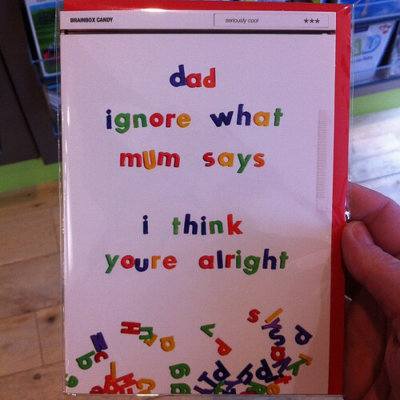The Effects of Divorce on Children – How Worried Should You Be?

By: bantamania
by Andrea M. Darcy
Are you and your spouse considering a divorce? But the question of whether or not it will be good for the children an argument that has you still hanging on?
What are the true psychological effects of divorce on children? And should you really stay together for the kids?
The effects of divorce on children have changed
When the psychological effects of divorce on children were first studied, the results did admittedly look rather dire… but then there was a tide shift.
In 1985, a paper led by E. Mavis Hetherington (who became the foremost expert on the effects of divorce) concluded children from divorced families suffered more negative life changes than their peers. They were more likely to have behavioural problems.
A 1991 overview of 92 other studies by researchers Amato and Keith added that children in single-parent homes exhibited more trouble at school, had lower self-esteem, and had more difficulties maintaining friendships.
Another famous researcher on the topic of the effects of divorce was psychologist Judith Wallerstein. She was known for a 25-year long study that claimed children from divorced families grow into adults with difficulties around intimacy and commitment.
But more than a decade later, in 2002, Hetherington co-authored a paper that found the short-term effects of divorce like anger and anxiety disappeared in most children by the end of the second year post the event. Only a small percentage of children continued to experience such negative effects longer term. What had changed?
Have the effects of divorce lessened?

By: Daniel Lobo
Obviously, our attitudes towards family structures have shifted in the two decades since these first studies.
Divorce, remarriage, and single-parent families are now socially acceptable. And indeed fairly normal in most sectors of Western society.
Nowadays a child is not left to feel they are carrying a shameful secret if their parents split up. It’s probable at least one or more of their friends also has divorced parents, or a different kind of family setup than the perceived ‘norm’.
And with time, information has increased for parents who are coping with divorce. This means divorce can be handled in ways that allow children more resiliency. In fact the paper co-authored in 2002 by Hetherington that presented a more optimistic outcome for children of divorce was called “Resilience and vulnerability: Adaptation in the context of childhood adversities”.
Was the original research about the effects of divorce flawed?
Generalisations aside, though, there is actually no recent comprehensive psychological study to show how much the effects of divorce have changed. With divorce’s move into the realm of ‘normality’, research dropped off. And it’s been well over a decade since any large-scale studies have been done.
On a good note, the ominous original research has been exposed as flawed. For example, the large scale study carried out by Wallerstein only involved subjects who were all educated and middle-class – limited to say the least.
The most glaring problem with the previous studies of the effects of divorce on children is that couples who divorce are unhappy, whereas those who stay together are more likely to be happy. So comparing unhappy families to happy ones does not necessarily prove the effects of divorce at all, but maybe just the affects of having happy or unhappy parents.
This raises questions, like, are such children growing into adults afraid of commitment because their parents divorced? Or because they watched their unhappy parents relate to each other in damaging ways?
The REAL damage from seeing your parents divorce?
A 2015 thread about divorce on a Reddit forum received attention from places like the Huffington Post. It revealed that the questions and issues being posed by kids were much less to do with ‘should my parents

By: annie
have divorced’ (many seemed relieved their parents had finally split) and more to do with how parents dealt with divorce.
Issues raised included:
- not understanding (never being told) what made their parents divorce
- feeling responsible for the wellbeing of younger siblings
- being worried about money and poverty
- having to listen to parents ‘badmouth’ each other or pit them against the other parent.
This all coincides with conclusions drawn by researchers Kelly and Emery in a 2003 literature review on children’s adjustment following divorce.
They suggested once the stress of initial separation was dealt with, a child was left to deal with the perhaps more damaging stressors of:
- parental conflict
- the stress of diminished, less effective parenting (parents are distracted by their own issues)
- the stress of decreased economic opportunities
- and the stress of remarriage and re-parenting.
To Divorce or Not to Divorce, Then?
The truth is that a child, like anyone, really, thrives in an environment that feels safe, supportive, and loving. This environment is something that can exist, or not exist, whether you do or don’t divorce.
If you and your partner find it difficult to sustain such a healthy environment when living under the same roof, it might be that staying together is causing more damage than divorcing ever could. And a divorce, done in a way that handles all the stressors mentioned in the previous section? Might be easier for your children.
But before jumping to conclusions, it’s wise to consider seeing a couples counsellor. They will not tell you what to do – that is not their job. What a couples counsellor does is to help you get clear on what you are actually thinking and feeling, and help you and your spouse finally communicate with each other.
A couples counsellor can help you ask yourself good questions, like, are we really staying together for the children? Or has this become an excuse for putting off a good honest look at what would need to be changed to effectively continue our marriage? What is that, and are we up for it?
You might find that you truly are ready to move on. A counsellor can help you do so in a way that is the least emotionally damaging for both you, your partner, and your children.
But you might just find that amidst the confusion, there is still something work fighting for. And that you still do want to stay a working family unit. Counselling can help you make a plan to do just that.
Time to get help for your family issues? We connect you a team of some of London’s best couples counsellors and family therapists. Or use our therapy listings site to find UK wide therapists, some available at short notice.
 Andrea M. Darcy is a mental health and wellbeing expert and personal development teacher with training in person-centred counselling and coaching, as well as a popular psychology writer. She remembers wishing as a child that her parents had divorced sooner. Follow her on Instagram for encouragement and useful life tips @am_darcy
Andrea M. Darcy is a mental health and wellbeing expert and personal development teacher with training in person-centred counselling and coaching, as well as a popular psychology writer. She remembers wishing as a child that her parents had divorced sooner. Follow her on Instagram for encouragement and useful life tips @am_darcy





I think you’ve said it all here. What matters is not the divorce, but the way parents relate to each other and to their children. Disrespectful, hurtful relationships played out in front of children hurt them. They go from loving both parents to feeling they have to choose, or possibly defend one against the other. Parents should ensure their children feel safe and loved and not indulge in powerplay and conflict.
Well said Sarah, thank you!
Hi there,
I’m looking for a recommendation from anyone from Sydney or Australia whom might be able to help me? My parents divorced when I was 7. I’m 30 now and unfortunately, it wasn’t just the traumatizing separation/divorce that has made life seem pretty sad even if I try to look on the bright side. My mother who didn’t want us won custody, my family turned against each other (my parents had both met after previous marriages and children so many are affected), my mother suffers severe depression and has created a war in my family to the point they are all suing each other, my dad then died when I was 19 from a heart attack and my mother now has cancer and starts chemo next week. I’m really struggling to deal with everything and I think I need to talk to someone about it. I broke up last year with my partner of 7 years, and although I’m seeing someone now, I still feel lonely like I can’t talk to anyone and I’m confused in my own head. It’s very overwhelming for me and I feel very insecure. I’m just trying to get by day by day. It’s the first time I’ve publicly exposed this and I’m crying as I write this which means I know I need help.
Helen
Talen, that is an ENORMOUS amount of stuff to deal with. Anyone would be overwhelmed. And we commend your courage to know that it’s time to seek support. We are in the UK, and while our new sister site does offer online and phone therapy globally, with the time difference it would be tricky. We’d suggest you google your post code along with the word counsellor and/or psychotherapist and see what comes up. Then read our articles on what to look for in a therapist. What is most important is that it’s someone you think you can grow to trust over time (given your childhood, don’t expect to completely trust a therapist right away). Also, if it feels desperate, google ‘helpline Australia’ as there will be several free ones. We wish we could tell you exactly what they are but as we are in the UK our guide to helplines won’t be relevant. On a good note, you’ve taken the hardest step- admitting you need help and being ready to find it. Change really can happen. It’s a journey, but it’s well worth it. We wish you courage!
Hi, divorced father here. When me and my partner separated almost a year ago. From my pov it looks like we did it on pretty good terms, no excessive fighting in front of our kid or other nasty separation stuff. Son, as reported by nuns in kindergarten, is a happy kid, none of them even noticed for a couple of months that their parents were divorced. I think we are trying to act the best for the sake of our child, although some tension can still be felt. My ex is already married and several months pregnant and living with a new man.
The problem at hand which we’re struggling right now is that one evening when he was spending time in my place (I do live with my new girlfriend) I’ve heard him cry just when I put him to bed. When I came to him he told me that he was afraid to die. I didn’t know how to react exactly, so I’ve tried to act as honest and caring as possible. I’ve explained him that everyone will die sooner or later, but his time is still long time, and that he shouldn’t be afraid of it and that I will always be there for him. No sugar coating, but not going absolutely blunt about it.
Now my ex says that he’s still crying before going to sleep on lunch or night. Her new partner just went out for couple of weeks to another country to fix some stuff, so that might scared him off as well.
I was wondering maybe there’s something wrong were doing and what are general rules of thumb when dealing with this type of situation.
First of all, take the word ‘wrong’ out of it. Parenting is hard. There is no exact manual. What we see here are two parents who love their kids and are doing their best, despite navigating a new way of being a family. It’s not uncommon for children to be afraid of death. Or to focus all their anxiety and worry on one fear, which can be death. As you suspect, it seems this is about bigger emotions. We wouldn’t say there is a need to panic. Or to assume it is about one thing. It’s more likely a build up of emotion. We’d say there is a need to learn how to communicate and listen in a way that works for kids and see where that takes you first. While facts work for adults, often kids need to feel understood on an emotional level. They don’t actually want the logic bit they want to be heard. It can help to acknowledge their feeling and help them express it, by finding a word for it that feels right for them, for example. There is a very useful book that helps with this, a practical, easy to read and use manual you can put into action right away, that’s also fairly eye opening. “How to Talk so Kids Will Listen and Listen So Kids Will Talk”. By Elaine Mazlish. Give it a go. Best, HT.